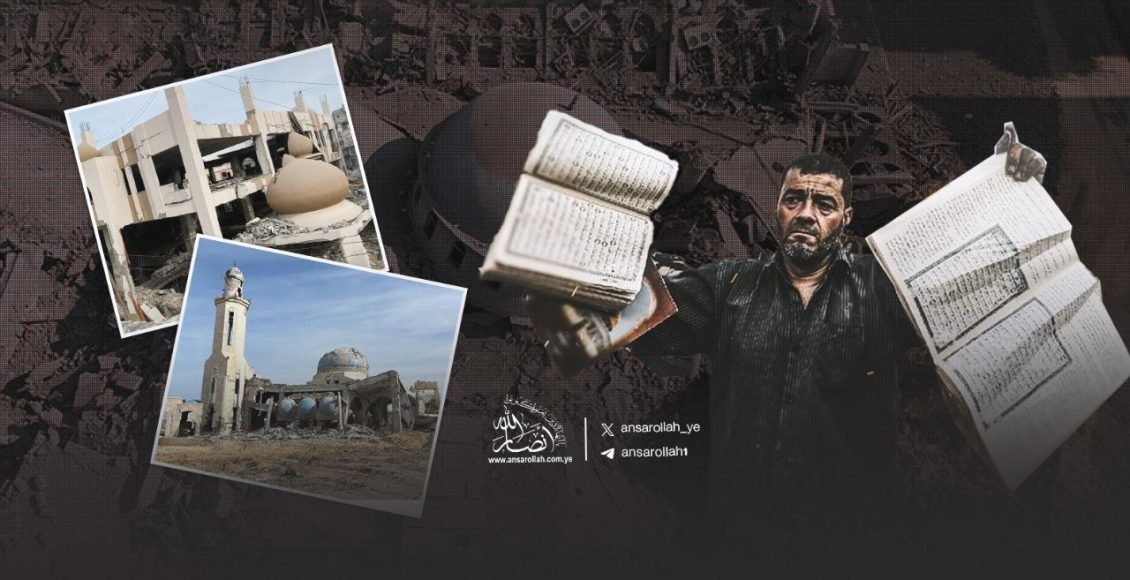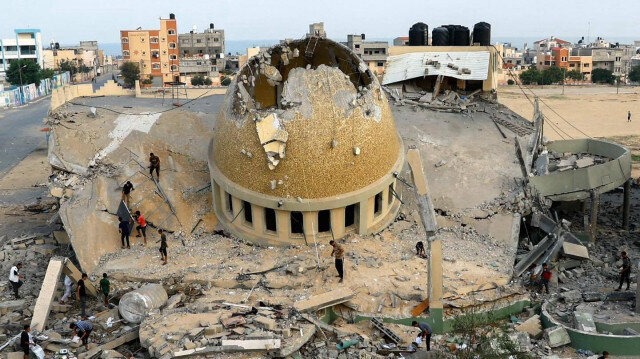Historically, mosques and Islamic holy sites in Palestine have stood as deep symbols of the cultural and religious identity of the Palestinian people. Recognizing their significance, the occupying enemy specifically targeted them early on, committing various assaults with the aim of Judaizing and erasing these sites. An incident that comes to mind is the Arson of Al-Aqsa Mosque on Thursday morning, August 21, 1969 (7 Jumada al-Thani 1389 AH). Despite Al-Aqsa being among the most sacred Islamic sites, Zionist assaults on it have repeatedly occurred, not to mention near-daily incursions aimed at establishing control and Judaizing the surrounding area. As well as extensive digging beneath the mosque further threatening its collapse.
[caption id="attachment_734393" align="aligncenter" width="380"]
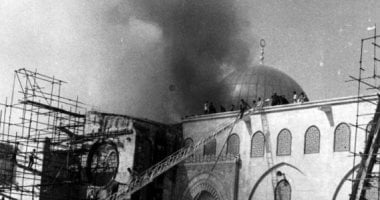 al-Aqsa Mosque Arson[/caption]
al-Aqsa Mosque Arson[/caption]
The entirety of al-Quds faces relentless, constant threats to its revered Islamic landmarks. The occupying enemy imposes daily violations upon its visitors. This reflects an Israeli strategy to control the city and impose a new reality that furthers Judaization. Al-Aqsa Mosque, due to its profound religious significance in Islamic consciousness, has become a barometer for the occupiers to gauge reactions—not only among Palestinians but across the Islamic world.
Over seven decades of occupation, the repeated attacks on al-Aqsa have revealed the tragic result of gradual, cumulative efforts by the Zionists to desensitize the Islamic world, leading it to accept such violations as mere routine news, stripped out of religious or national fervor— a direct outcome of a systematic effort to detach the Muslim community from its sacred sites and symbols.
The role here falls upon the Arab media, which has often presented the news of al-Aqsa assaults stripped of its profound religious and cultural context. Ideally, coverage of these attacks should be given special attention in presentation and prioritization, as assaults on holy sites represent not just attacks on physical structures but on the entire Islamic identity.
Committing Genocide and Executing the Palestinian Identity
In Gaza, even before the recent al-Aqsa Flood, mosques and holy sites endured recurrent attacks, targeted during each Israeli aggression. In the 2014 assault on Gaza, numerous mosques were deliberately destroyed. The devastation of these mosques aligned with Zionist objectives to uproot Palestinian Islamic identity, ultimately aiming to create a new reality that erases the history and rights of the Muslim Palestinian people, replacing them with Jewish occupiers.
During the latest conflict, the Zionist forces seized the opportunity to target all of Gaza’s mosques to partial or complete destruction. Recent data from Gaza’s Ministry of Religious Endowments reveals that the entity's army destroyed 79% of the mosques and three churches, also targeting 19 cemeteries.
The ministry stated in a recent announcement: "The Israeli occupation destroyed 814 mosques out of 1,245, totaling 79%, and damaged 148 more. Three churches were also destroyed, and 19 out of 60 cemeteries were systematically targeted.” It added that the financial losses and damages incurred by the ministry amount to around $350 million. Furthermore, the ministry reported that, during the genocidal aggression, the Israeli army desecrated graves, stealing thousands of bodies and mutilating them in brutal, barbaric ways.
The ministry’s report also noted the destruction of 11 administrative and educational buildings, representing 79% of the total 14 such buildings in the region. It stated that the entity's forces killed 238 ministry staff members and detained 19 others during ground operations in Gaza.
[caption id="attachment_734279" align="aligncenter" width="1077"]
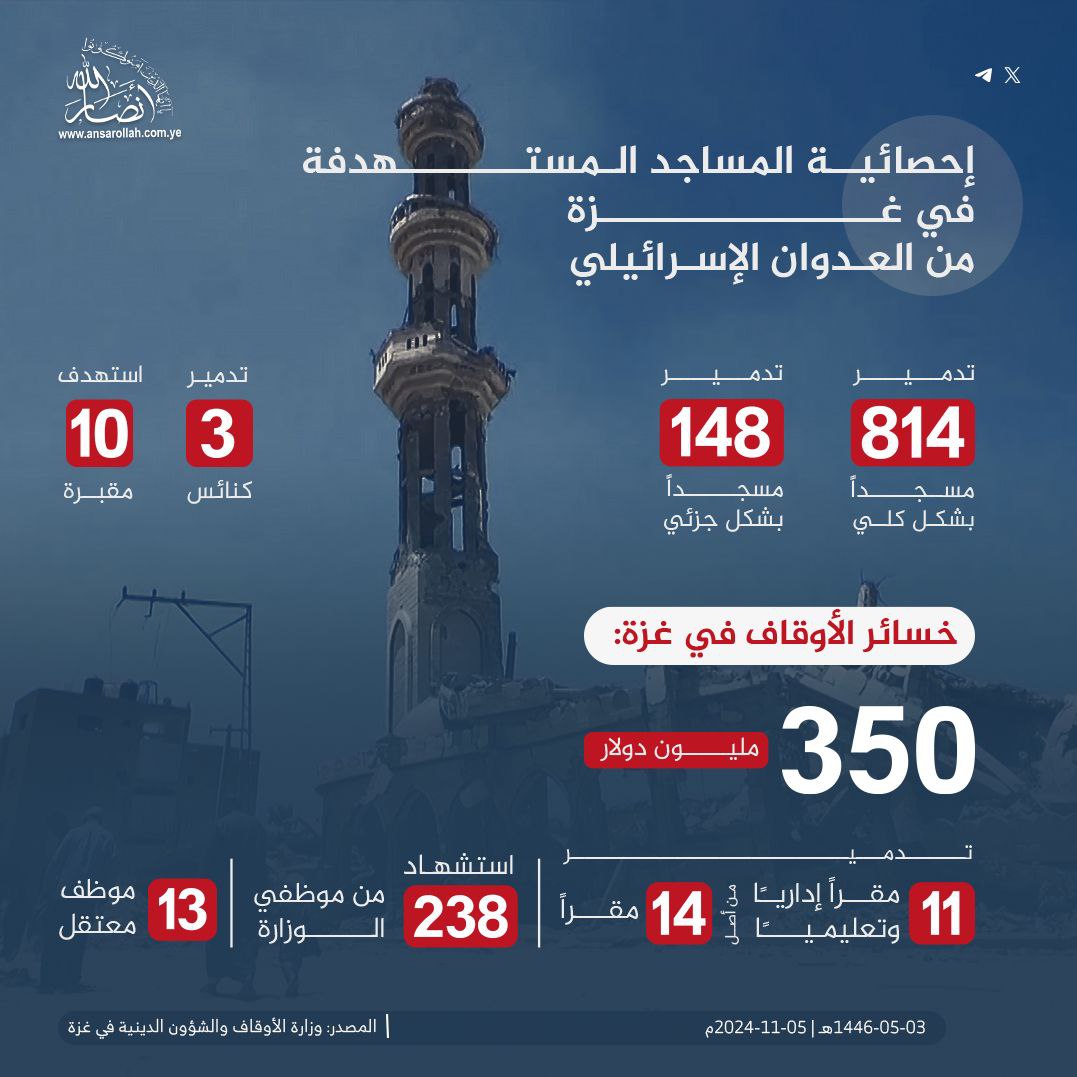 Mosques Targeted in Gaza by the Zionist Aggression[/caption]
Mosques Targeted in Gaza by the Zionist Aggression[/caption]
An Endless War on Islamic Identity in Palestine
The challenges Palestinians face in defending their identity, religion, and Islamic landmarks are part of a long-standing cultural clash—a renewed aggression on Islam and Muslims. The aggression not only targets buildings but also aims to erase the collective memory of Palestinians, to uproot their Islamic heritage. It represents a religious confrontation where Palestinians are merely the first victims, and the broader target inevitably extends to nations neighboring Palestine.
The 1969 arson of Al-Aqsa Mosque was just one episode in an endless series, as the so-called State of Israel had waged its campaign since August 21, 1969, when fire was set to the mosque. This desecration failed to ignite any strong response from Arab regimes, who felt no urge to protect the sacred site. The weakness of their response emboldened further assaults, with subsequent incursions into the mosque’s courtyards, the erasure of its features, and the digging of tunnels beneath it, threatening its structural integrity. Palestinians, standing alone with mere stones, fight against these desecrations to prevent the Judaization of what remains of the nation’s honor, while facing silence and normalization from regional leaders.
Since the Zionists operate from a religious perspective, they target Gaza’s mosques with or without justification. On occasion, they search for mosques, striking shelters used by displaced people under the pretext of targeting Hamas fighters, as in the bombing of al-Aqsa Martyrs Mosque, Sheikh Radwan Mosque, and al-Attar Mosque. Their hatred was evident in their bombing of the historic al-Omari Mosque, which, with its ancient legacy, stands in stark contrast to their fabricated historical claims.
[caption id="attachment_734211" align="aligncenter" width="640"]
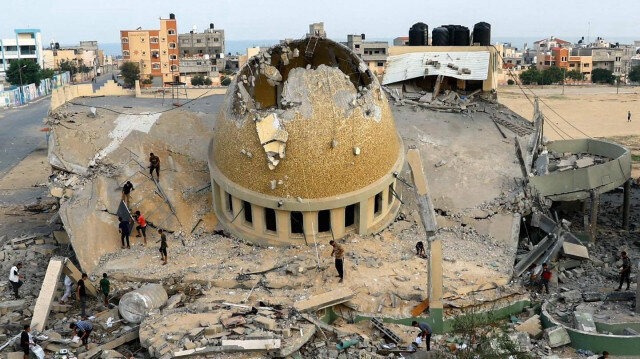 Zionist Enemy Targets Mosque in Gaza[/caption]
Zionist Enemy Targets Mosque in Gaza[/caption]
In the West Bank, the occupying forces frequently storm and desecrate mosques, a provocation that has become a daily part of life for Palestinians under occupation. This desecration extends to southern Lebanon, where they have targeted mosques in Majdal Silm, al-Zahraa, and al-Dhahirah. The occupiers have boasted of their actions, posting videos of these desecrations, including scenes of occupying forces desecrating prayer platforms and burning Qur’ans.
[caption id="attachment_734217" align="aligncenter" width="1080"]
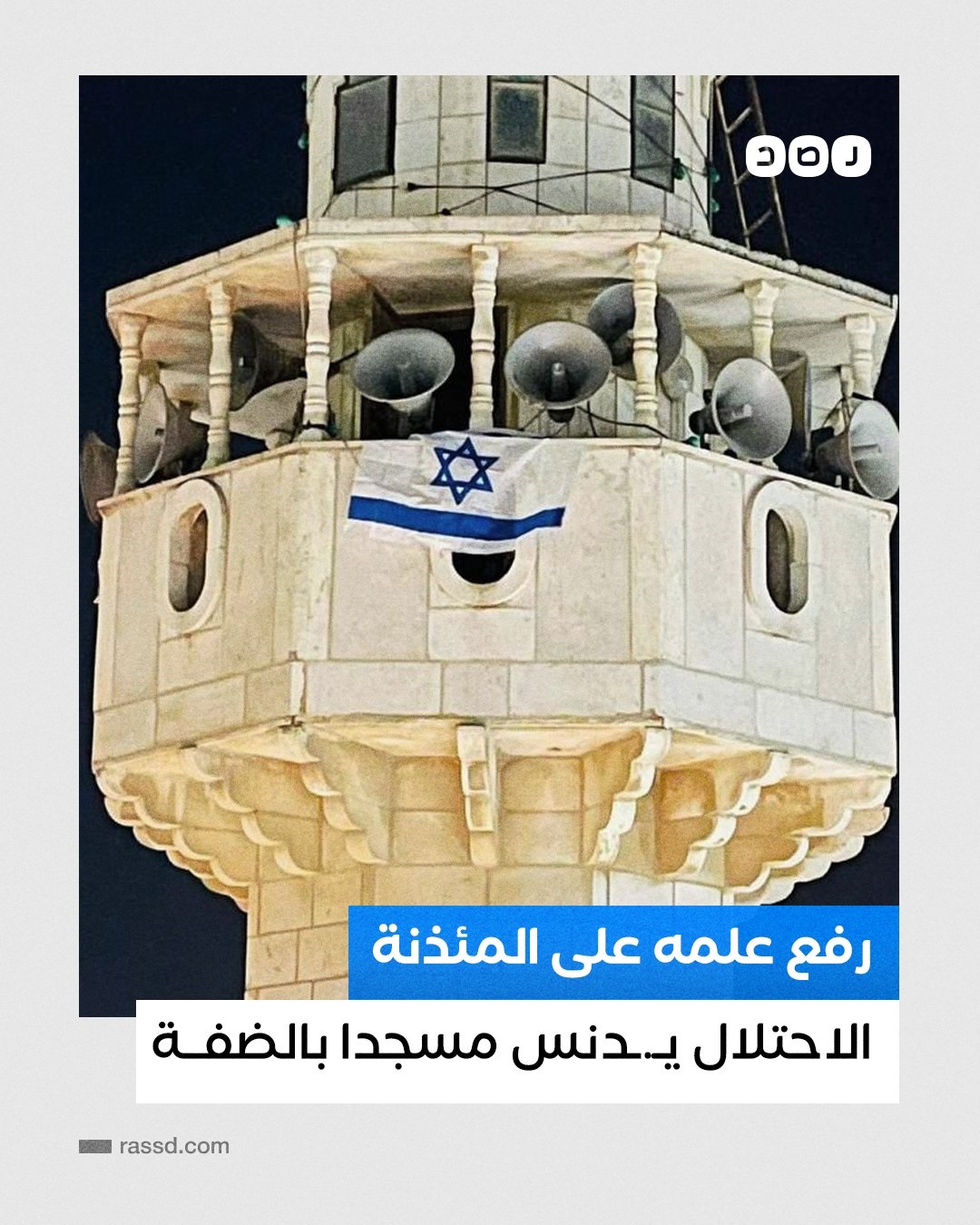 Enemy Desecrates Mosque in the West Bank[/caption]
Enemy Desecrates Mosque in the West Bank[/caption]
The continuation and intensification of these systematic, deliberate, and unprecedented assaults on Islamic holy sites reveal the distorted ideology of the Israeli occupiers and their baseless myths driving their project of a "Greater Israel." However, amid these circumstances, hope remains in the resilience of Palestinians defending their identity and holy sites, and in the support of allied forces engaged in a battle that increasingly manifests as a cultural and religious struggle. This struggle presents an unprecedented test—a difficult, defining challenge in the history of this conflict.

